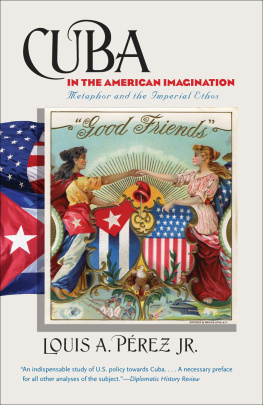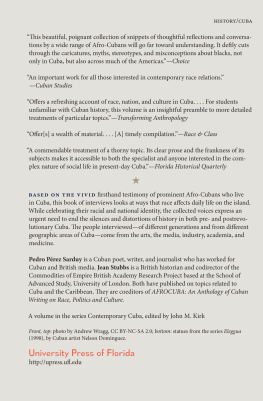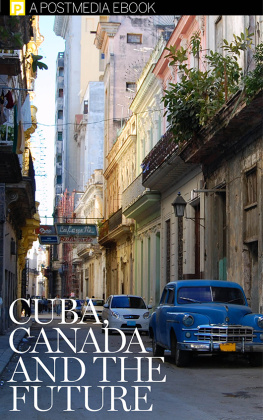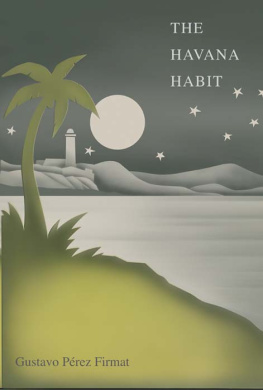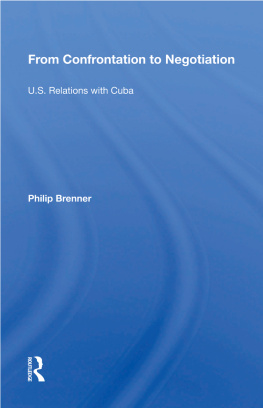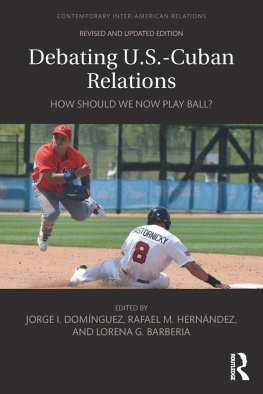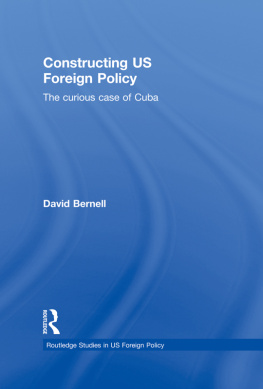The War of 1898
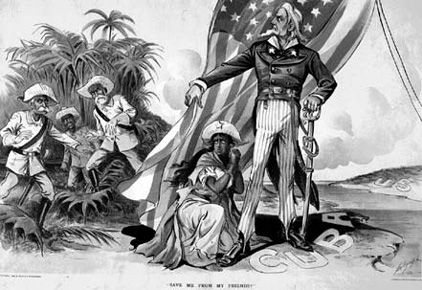
Save Me from My Friends! Cartoon appearing in Puck, September 7, 1898. Taking Cuba from Spain was easy. Preserving it from over-zealous Cuban patriots is another matter, commented the accompanying editorial.
1998
The University of North Carolina Press
All rights reserved
Designed by Richard Hendel
Set in Monotype Garamond and Meta types
by Keystone Typesetting, Inc.
Manufactured in the United States of America
The paper in this book meets the guidelines for
permanence and durability of the Committee on
Production Guidelines for Book Longevity of the
Council on Library Resources.
Library of Congress
Cataloging-in-Publication Data
Prez, Louis A., 1943
The war of 1898 : the United States and Cuba in
history and historiography / by Louis A. Prez.
p. cm.
Includes bibliographical references (p. ) and index.
ISBN 0-8078-2437-2 (cloth : alk. paper).
ISBN 0-8078-4742-9 (pbk. : alk. paper)
1. Spanish-American War, 1898Historiography.
I. Title.
E715.P45 1998
973.89072dc21 98-2615
CIP
02 01 00 99 98 5 4 3 2 1
To the memory of
Ramn de Armas (19391997),
friend and colleague
CONTENTS
CHAPTER 1
On Context and Condition,
CHAPTER 2
Intervention and Intent,
CHAPTER 3
Meaning of the Maine,
CHAPTER 4
Constructing the Cuban Absence,
CHAPTER 5
1898 to 1998: From Memory to Consciousness,
Preface
The war of 1898 has loomed large in national discourses of the twentieth century. All parties involved have come to understand 1898 as a watershed year, a moment in which outcomes were both defining and decisive, at once an end and a beginning: that special conjuncture of historical circumstances that often serves to delineate one historical epoch from another. It was special, too, in that the passage from one historical condition to another was discernible at the time, even as it was happening.
Most U.S. historiography commemorates 1898 as the moment in which the nation first projected itself as a world power, whereupon the United States established an international presence and global prominence. Spanish historiography has looked back on 1898 as el desastre (the disaster)an ignominious denouement of a five-hundred-year-old New World empire, after which Spain plunged vertiginously into decades of disarray and disorder. For Cuba and the Philippine Islands, 1898 represents a complex point of transition from colony to nation in which the pursuit of sovereignty and separate nationality assumed new forms. For Puerto Rico, the transition was even more complicated, with central elements of nation and nationality persisting unresolved well into the next century.
The historical literature on 1898 in the United States has assumed vast proportions. It includes monographs and memoirs, published documents and unpublished dissertations, biographies and bibliographical guides, books, articles, and anthologies of all descriptions. The discussion of 1898 in various forms has loomed large in virtually every U.S. history textbook of the last one hundred years.
For all the importance traditionally accorded to 1898, and indeed the consensus has been one of the more notable characteristics of the historiography, generations of U.S. scholars have treated the war with Spain with ambivalence, uncertain as to where exactly to situate it: sometimes a war of expansion, other times an accidental war; an inevitable war or perhaps an unnecessary one; a war induced by public opinion or one instigated by public officials.
It is the thesis of this book that ambivalence in U.S. historiography is itself the product of a larger ambiguity, one that contemplates 1898 by way of such complex issues as motives and purpose, which in turn insinuate themselves into larger discourses on the nation: specifically, the way a people arrange the terms by which they choose to represent themselves. The meaning of 1898 in the United States is ambiguous precisely because what historical narratives understand the nature of the nation to be is itself constantly in flux in the form of self-interrogation as a means of self-definition. Far from detracting from the historical accounts, ambiguities shed light on the historiography as a form of national narrative and provide a way to gain insight into normative determinants of the historical literature. Modes of historical explanation have thus been simultaneously fitted within and derived from the moral hierarchies of the nation, fashioned in such a manner as to represent the ideals to which the nation has professed dedication. The telling of 1898in historical discourses both popular and professional, repeated and refinedhas served as a means of self-affirmation of what the nation is, or perhaps more correctly what the nation thinks itself to be, as past and present have been conjoined in the service of self-revelation. Representations of 1898 were early invested with the ideals by which Americans wished to define and differentiate their place in the international system.
A fuller understanding of 1898 must necessarily seek to expand its temporal reach and enlarge its spatial range. Advances must be sought in the reconfiguration of historiographical contours around categories shaped more by methodological considerations than national boundaries. U.S. historians whose livelihood has been the study of foreign relations have not typically been drawn to foreign archives. Nor do those who write about U.S. history ordinarily consult the historiography of other nations as a way to inform their own perspectives. This reflects a failure to take into account the part that others have played in outcomes of vital importance in U.S. history. The result has been a self-possessedto say nothing of self-containedhistoriography, given to the conviction that it alone has raised all the relevant questions and, of course, provided all the appropriate answers, and that the rest of the world has little useful to add.
The year 1898 occupies a special place in U.S. historiography. In one sense, the historical literature has assumed fully the proportions of a literary genre almost unique to the subject of 1898, best captured in the representation of the warand indeed central to popular understanding of the warthrough such phrasings as Remember the Maine! and John Hays proposition of a splendid little war. In another sense, the scholarship contains discernible traces of the ways that policy paradigms of 1898 have acted to shape the dominant historiographical formulations of the war: scholarship and policy converged and interacted and proceeded to assemble the familiarities by which the past was revealed.
This book is principally about one aspect of 1898: the complex relationship between Cuba and the United States and the ways that this complicated connection contributed to the coming of the war, no less than its conduct and consequences, as well as its subsequent representations and repercussions. This undertaking is informed primarily by Cuban historiography, steeped in the experience of decades of research in Cuban archives, of immersion in Cuban accounts of these years, as sources and scholarship, as first-hand accounts by participants and observers in the form of letters, journals, diaries, and official correspondence, published and unpublished. To this perspective is added years of consultation of U.S. archival and manuscript sources as well as the vast corpus of the U.S. historical literature on 1898. Attention is given to the ways that representations of Cuba have entered into the dominant historical narratives on the war. More specifically, and central to this discussion, the study that follows is about the historiography of 1898 in the United States, the accumulated historical scholarship of the last one hundred years and the degree to which historical narratives have reflected and reinforced notions of purpose and policy, many of which were first articulated and advanced in 1898 and served subsequently as the rationale of systems of domination. Cuba insinuated itself into one of the most important chapters of U.S. history. Indeed, what happened on the island in the final decade of the nineteenth century and the way that what happened has been subsequently represented and reproduced have had far-reaching repercussions, many of which continue to resonate in the final decade of the twentieth century.
Next page
